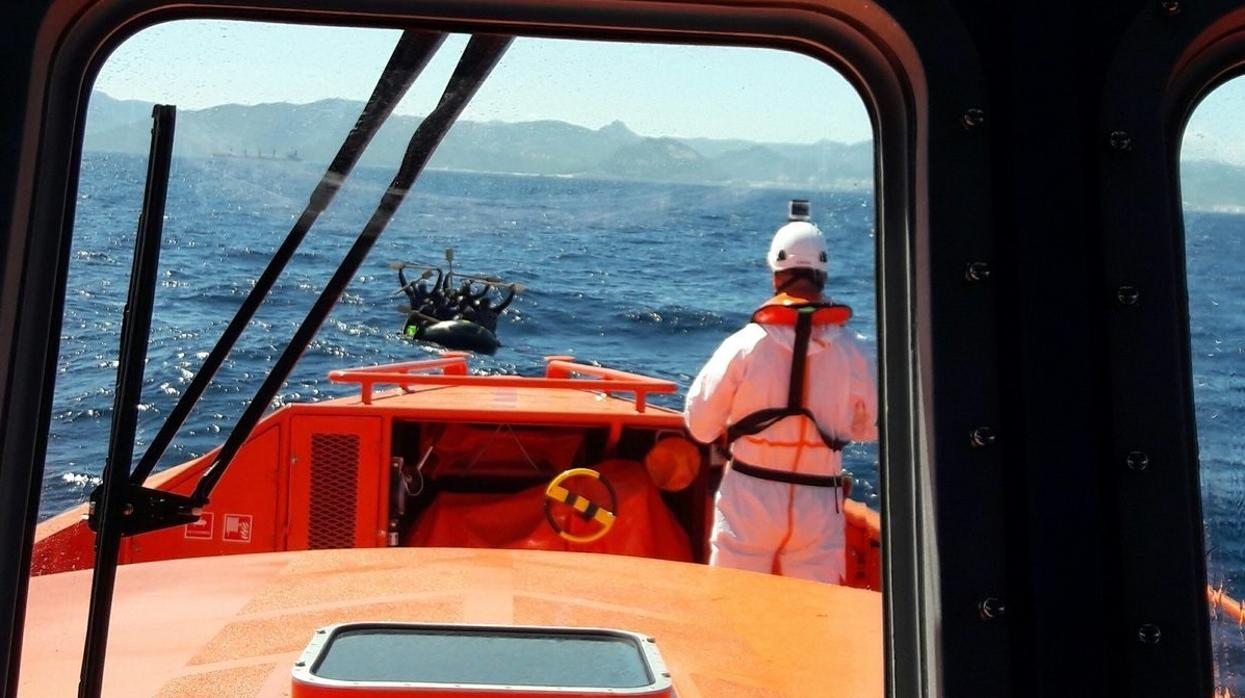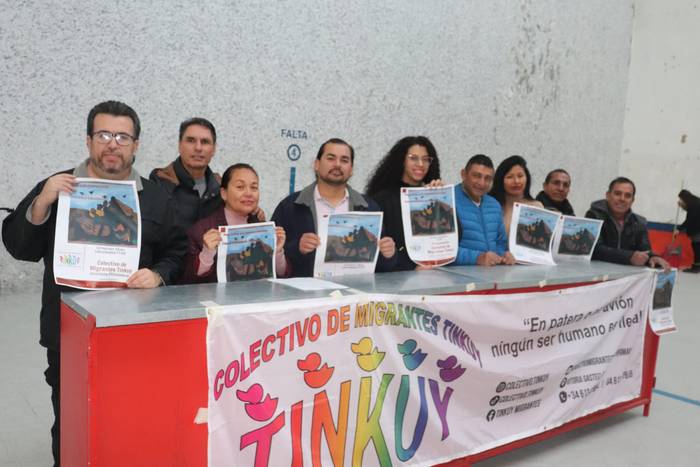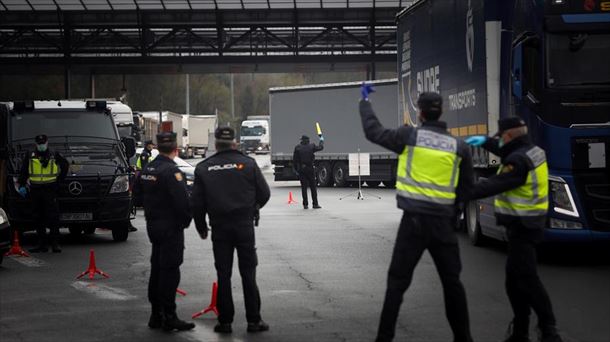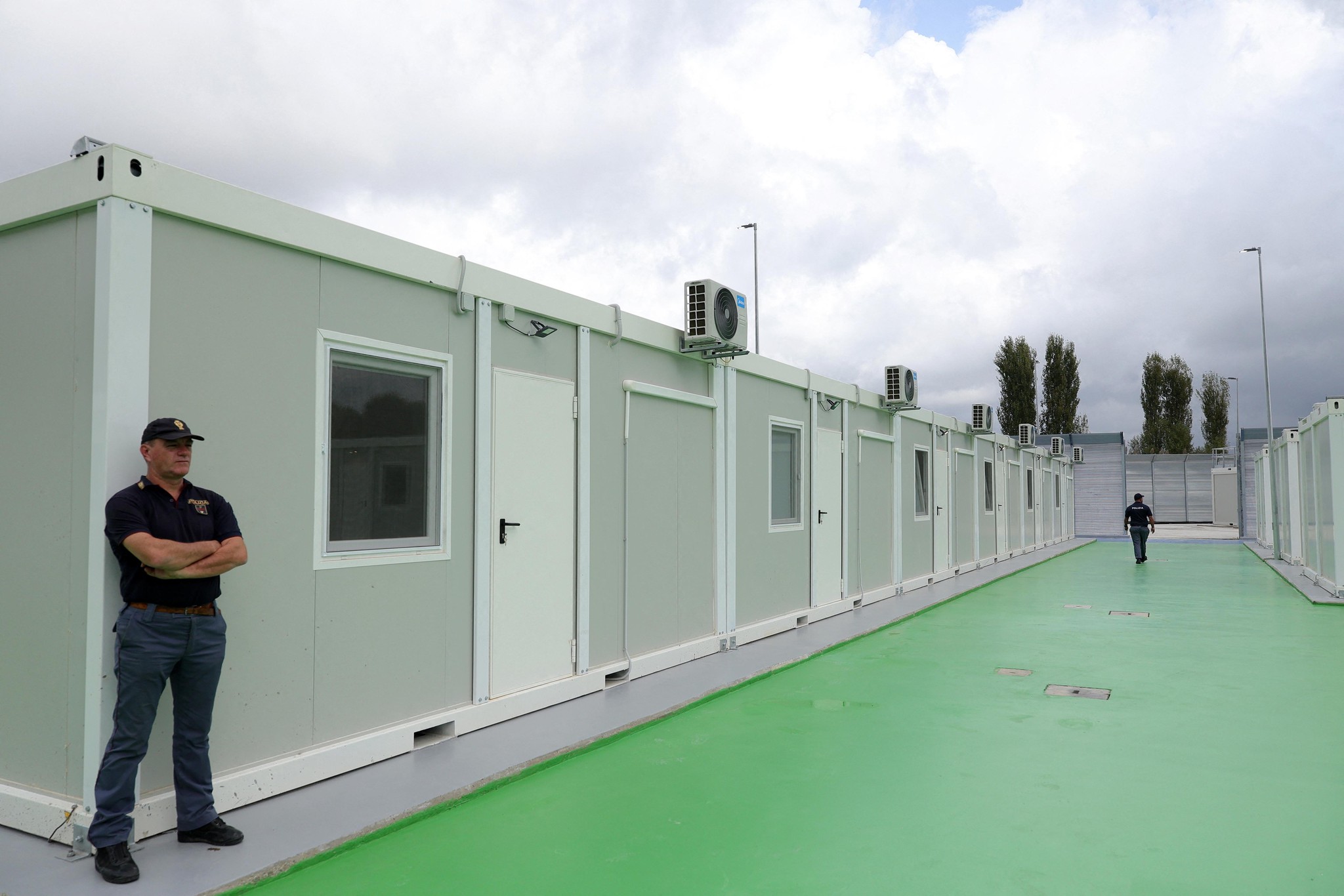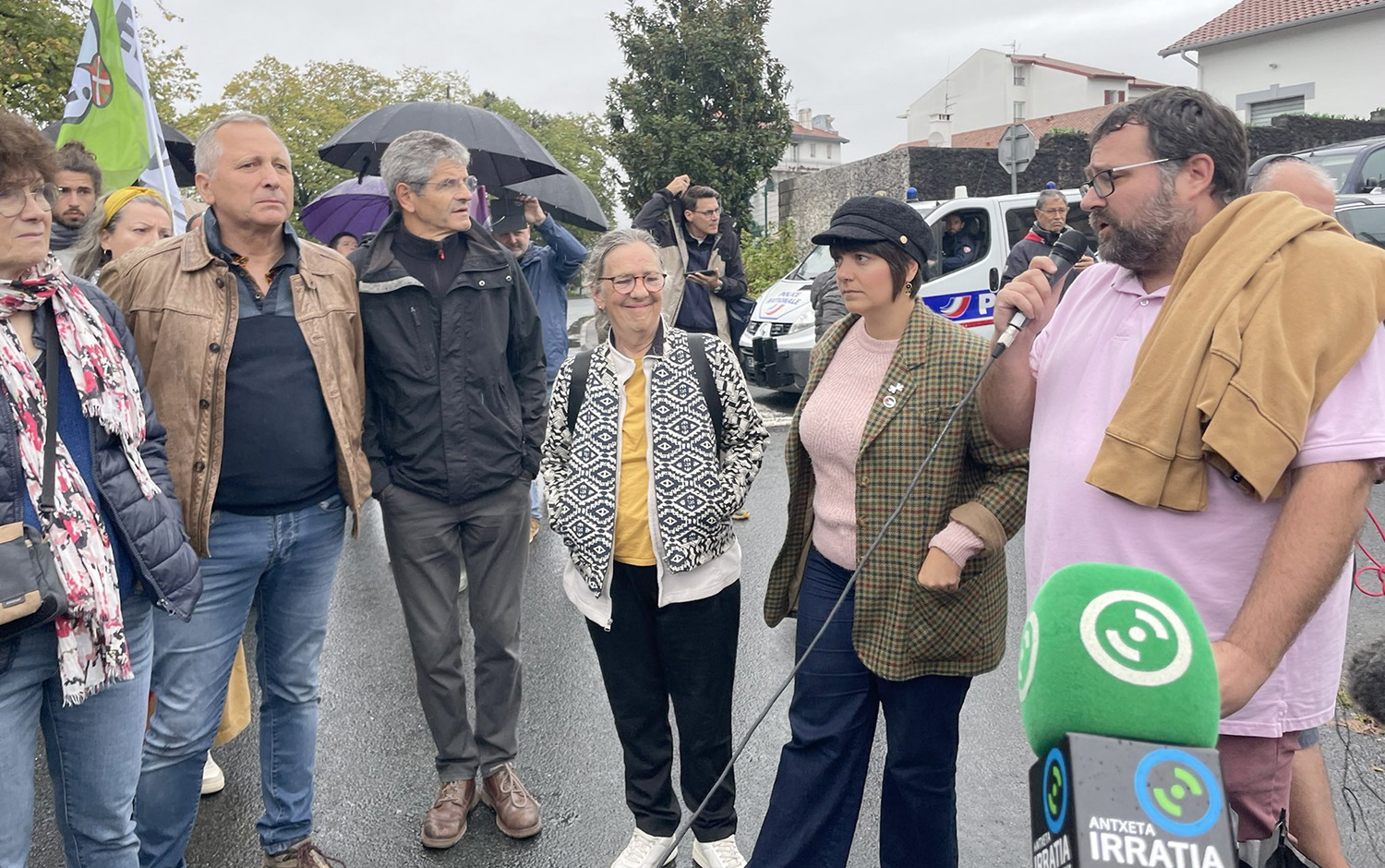"America has given me a lot, but I too have given America a lot."
- At the age of 20, Alberto Flór-Uranga left from Mutriku to Idaho (USA). Lonely, lost in the mountains, often looking at their coyotes and bears. "I would certainly do it again," he says, remembering those times.
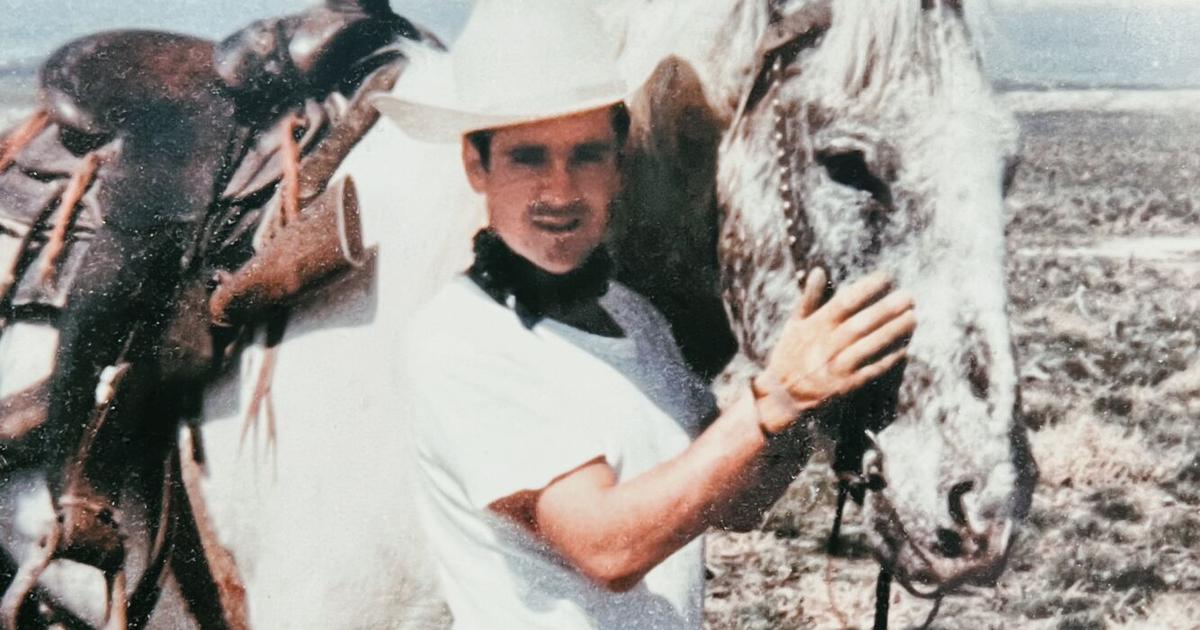
"I didn't know who was waiting for me; where was I going and what was I going," Alberto recalled from Mutriku, his sister's house. The visit will be brief, will come home soon. "The house," the 75-year-old man tells us, is about 8,000 kilometers from here in the American state of Idaho.
55 years ago, in 1974, Alberto had just completed a two-year military service in Cadiz (Spain). Back home, she got the job at a village janitor. But Alberto wasn't one of those easy to satisfy. I had a brother-in-law, Pete. I lived in Idaho, working as a pastor. He always told me that I had to go to America, that there were opportunities there," he said. "If I had succeeded, why wouldn't I have succeeded?" ".
Three months later, Alberto was at the Consulate of Bilbao in the United States. "At first we were told that the goal was going to be California; then Utah, and somehow, we ended up in the cold state of Idaho, with our names written in a cardboard, hanging from the neck. I just knew it would be hard.
"Land of the Brave"
Alberto was one of the thousands of Basques who fled Franco to the United States. Most of them were concentrated in the states of Idaho, Oregon, Nevada, Utah, Washington, Montana, Wyoming and Colorado, among others.
"At first, I was taken to a house full of Basques. Some had been there for 50 years and it seemed that life had led them forward. I found it disturbing and terrible: to see these people who have come for reasons similar to mine, doing the same thing over and over again…”, says Alberto, frown.
He stayed there for several winter days, until someone took him to the city to buy clothes. At first, his goal was to travel to the hot state of California. When I arrived in Idaho, I had only a couple short t-shirts and a thin jersey.
The group started on foot, accompanied by horses, dogs and chariots. Alberto was given a pistol and a horse. "We'll see you in nine months," they said to me with a smile. At the time I didn't know how to shoot, or ride a horse..."
After working in a number of places, he had to do it for an American family in Gooding, Idaho. In winter, sheep and pastors stayed on the ranch, but when spring arrived, the journey began. Small groups of pastors were moving from one side to the other. They could spend three weeks in one prairie before moving to the next. So until winter comes.
Often, Alberto had to handle herds of about 2,000 sheep, climbing the mountain and down the valley, until on the next site he met a colleague. It was a solo journey of over ten days with his dog and his horse.
-I always slept in tents, on the ground. Cascabel snakes were typical, and they're really not very good pets... Coyotes were the other big problem. They attacked the sheep; at the end of the month, the cost of every lost sheep was taken from my wages," says Alberto.
Pastors also met the bears. One time, Alberto says, they realized that they were already close to him and his partner. "Don't you see there's a bear? "Alberto said to his colleague. But he was freezing, unable to breathe. At the time, Alberto shot him. Luckily, he hit his forehead and died instantly. "It was a miracle," says Mutriku's, with his hands in his head.
Every day, it brought new challenges. For example, food, clothing, letters and other objects were sent to him every two weeks: in trucks, sometimes, or in trolleys, and also by helicopter.
Every now and then a newspaper arrived. It became Alberto's only tool for learning English. Learning the language was considered fundamental. He says that most pastors spoke only in Basque. -I didn't understand why they didn't hold English. I was sure I wouldn't get out of there if I didn't learn.
Enemy solitude
In any case, loneliness was the greatest enemy. "I lost six people, six! ", Alberto remembered, both word and finger. "They committed suicide. One had a gunshot wound in his head; another was thrown into a river...
Her wife asked a friend for divorce. The man tried to reassure him, but the next day he committed suicide from a shot. "He was the luckiest man I ever met, so smiling..." Despite having spent more than six decades, the emotion surpasses him.
You also mentioned nostalgia. It was hard to resist. -I had the house far away, I didn't know what was going on. There were few letters coming, at most once a month. If you lose someone close to you, you had to have spent several weeks to know," he said.
A few years later, Alberto left grazing and got to work at Gooding's post office. He later worked as an insurance agent. Finally, bringing their savings together, he created his own investment company. He is also very proud of it.
Basque Heritage
Urtzi Urrutikoetxea, a former US correspondent, has also reported on the Basque diaspora. According to the telephone, the Basque community is not known in the east of the country, but in the central and western states, especially in Idaho. "The availability and resistance to the work of the Basques has left a permanent trace at work," said the journalist.
"From there came, among others, David Harold, Boise's Basque American Mayor, or Pete Cenarrusa, who worked in the Idaho Parliament for over five decades," Urrutikoetxea said.
In the United States there are more than 38 Basque centers, most of them in the western regions. Cultural initiatives such as the Boise Basque Museum or the Boise Euskal Etxea are aimed at heritage conservation. Annie Gavica is a fourth-generation American. He is also Executive Director of the museum and expert in educational programs at the Basque Cultural Center in Boise.
"Today the Basques are well integrated into the community, retired from work, and their descendants work in many areas," Gavica tells us. "Those who migrated here did a great job in getting their children, grandchildren and relatives to get everything they wanted," he added.
Alberto met his second wife in one of those Basque Etxeas. The couple had two children, Sole and Sebi. The former pastor was very important in creating the nonprofit festival "the Trailing of the Sheep". It is held every autumn in Idaho and reminds of the traditions of the Basque pastors. Currently, Sole, 30, retains her father’s legacy as director of the Idaho Sheep Caregivers Association and participates in the festivals.
It's been six decades since Alberto moved to America. -I would certainly do it again. I did the best I could, and that's all you can do in life. I have never looked back," the "proud Basque American" insisted. That's what he says.
"America gave me opportunities, America gave me a lot, but I too have given a lot to America," he added.
The poor management of the Valencian cold drop has led to a change in adverse meteorological alerts, as shown in the first season of "winter". Faced with the threat of rivers overflowing in Hego Euskal Herria, the indications for protection came along several paths, since no... [+]
Gasteizko Errotako (Koroatze) auzoan izan diren manifestazio "anonimoek" kolokan jarri dute auzokoen arteko elkarbizitza. Azalera atera dituzte ere hauetan parte hartu duten partidu politiko batzuen eta beste kide batzuen izaera faxista eta arrazista.
I started to mentally write my article while I was in the car. I usually have the best ideas in the car while driving alone. I'm going to Bilbao, to the Arriaga theater. The Artedrama company is today staging the Miñan play. It's Friday, October 25.
Approaching the atrium of the... [+]
Unfortunately, we are well separated from travelling and migrating. In the case of migrations, the process does not end either when reaching the intended locality, or when obtaining permission to reside in another town, it can take many years of their lives, decades, until they... [+]










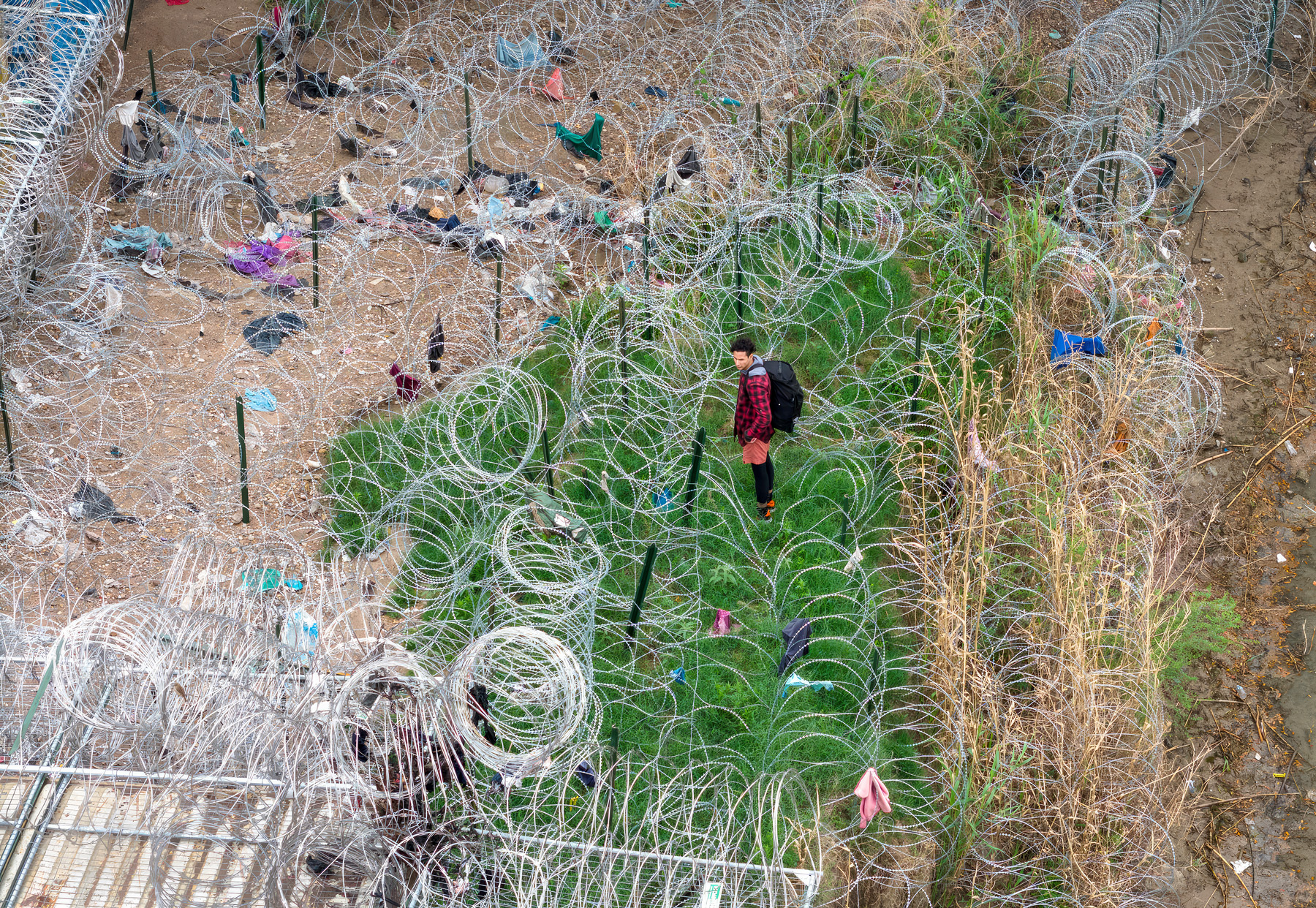

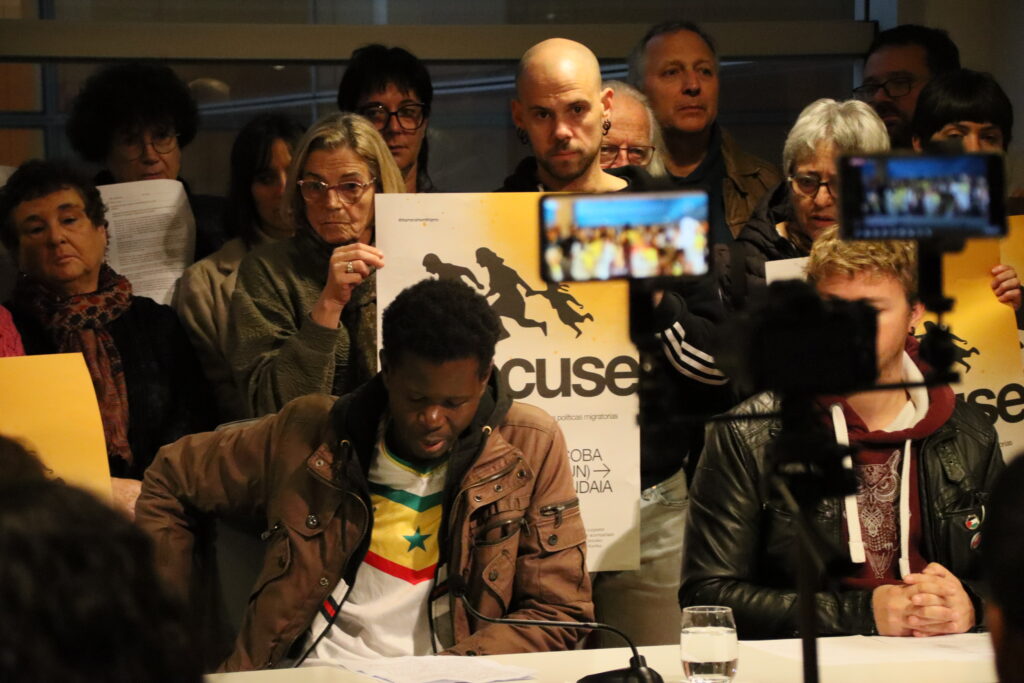
.jpg)


